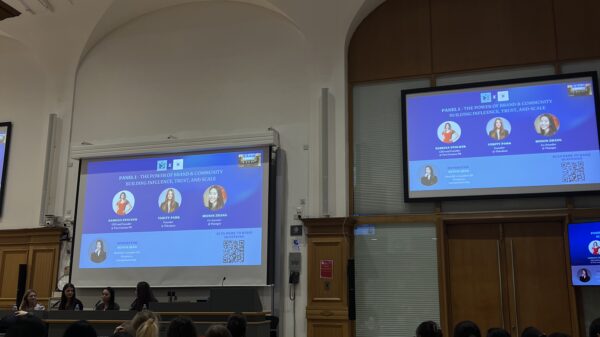Roar writer Helen Kursten-Holmes on the recent LSE event regarding populism post-Covid-19, and what we can learn from its panel.
Populism has become the defining feature of modern politics. Populists claim to vocalise the feelings of anger and alienation expressed by a disenfranchised public who feel they have been failed by society and left behind in an increasingly globalised world. With their divisive rhetoric and distrust of the elite, left-wing and right-wing populist figures are seldom without controversy, often adopting authoritarian and brutal tactics to achieve their political ends.
Over one-third of humanity lives under populist regimes; this figure alone demonstrates the serious challenge they pose to liberal democracies, in which populist parties appeared to be gaining public traction Рthat is, until Covid-19 struck. The LSE event Populism in the Post-Covid-19 World marked the launch of a new public policy journal: the LSE Public Policy Review. Panel members Professor Sara Hobolt, Professor Michael Ignatieff, Professor Andr̩s Velasco, and Jesse Norman MP, each discussed the causes and consequences of the populist surge and how the pandemic may impact future populist movements.
On the topic of whether populism is a threat to democracy, Ignatieff said that populism is: “a risk to democracy [and] a threat to the institutional balance of a democratic order.
“Populists invariably challenge the legitimacy of representation – representative democracy. They challenge the authority of those who purport to represent the people and claim that they represent the people better… they challenge the rule of law, they say we don’t want judge-made law we want majority rule to prevail over the rule of law in liberal democracies.”
Ignatieff also distinguished between populism which renews democracy and populism which can be lethal to it, remarking that “populism is a source of renewal, of challenge, of contestation to democracy, it forces us to look at democracy as an arena of constant contestation… the case where it’s dangerous is where an authoritarian leader uses the legitimacy of majority rule to systemically undermine the countered majoritarian institutions rule of law, freedom of press [and] free institutions that keep us free.”
While we’ve seen a rise in right-wing populist parties, there have been instances of left-wing populist parties achieving electoral success, such as Spain’s Podemos, Greece’s Syriza and Indonesia’s Indonesian Democratic Party of Struggle. Ignatieff commented that every form of populism attempts to mobilise the people by saying “your elites have been serving you poorly, we’ll represent you better.”
With questions surrounding what the Covid-19 pandemic means for populism, Hobolt offered her own explanation. She shared that “voters appear to be more interested in competent, evidence-based responses to the crisis and not the sort of anti-establishment rhetoric.” Although she believes that there are some opportunities for populists post-Covid-19, she stated that “populist parties might find it difficult right now to exploit the immediate health crisis that allowed the mainstream parties to showcase their competence. That doesn’t mean that [populists] won’t find innovative ways to leverage the difficult economic times ahead and to cause more disruption.”
Velasco referred to populism as “a kind of extreme identity politics because it’s always us versus them. Because it’s about identity and not about ideology, you can get left-wing and right-wing populism, it all depends on who the bad guy is.” He identified two politically striking features of populism, firstly a “denial of complexity” where populists confront complex matters with simplistic solutions, citing Brazilian President Jair Bolsonaro, who labelled Covid-19 as an invention of the press and a “little flu.” The second feature is “a denial of pluralism.” This is a regular occurrence in Belarus, where President Lukashenko – who is seeking a sixth term as president – has barred and jailed his rivals in the run-up to the presidential elections, a move which has been widely criticised.
When asked whether all forms of populism are irreducibly personal and about a leader’s struggle against the establishment, Velasco responded: “Running for office is all about storytelling… if people like Biden are going to beat Trump it’s not only because they have better policies, it’s because they can tell a better story about a country that comes together… because we stand for decent, humane, universal principles.
“If liberals don’t learn how to do that, I’m afraid we’re going to have lots of powerful populists running the world.”
Ignatieff discussed whether the press resists or acts as an abettor for populist movements. “The populist style is simply to attack [the press] directly saying that they are creating a false reality… it’s a constant challenge to the very legitimacy of a free press that you see in Trump and you see in Bolsonaro and the press has to fight back. The danger for the press is that the press enlists itself in what it sees as a battle for its own survival and in the process can cease to produce the impartial evaluation of public events that a free press is supposed to do.”
The staggering death tolls in populist-led countries reflects the delayed and inadequate responses to Covid-19 from their leaders. For instance, US President Donald Trump has routinely ignored his own medical advisors, tweeted conspiracy theories, promoted dangerous “cures” for the virus, and falsely claimed that areas of the US are “corona-free.” The US has the world’s highest number of reported Covid-19 deaths at over 150,000.
Brazil’s Covid-19 death toll follows in second place, as President Bolsonaro also underestimated the seriousness of the virus. He belittled the pandemic, flouted social distancing rules, and was pictured shaking hands with supporters at an anti-democratic protest in spite of lockdown measures put in place by local authorities – he’s since tested positive for the virus. As the pandemic swept through Europe, Boris Johnson’s government was slow to impose lockdown measures when other European nations were shutting down. The mishandling of the pandemic resulted in confusing guidance, severe PPE shortages for healthcare workers, lack of sufficient testing, and deaths that could have been prevented.
Populist leaders and their opponents are battling for dominance. Whether support for populist governments will decline following criticism of their Covid-19 response, or if there will be a revival of mainstream politics, remains to be seen.
Roar News writer. BA Classical Studies with English student and a K-drama enthusiast.













